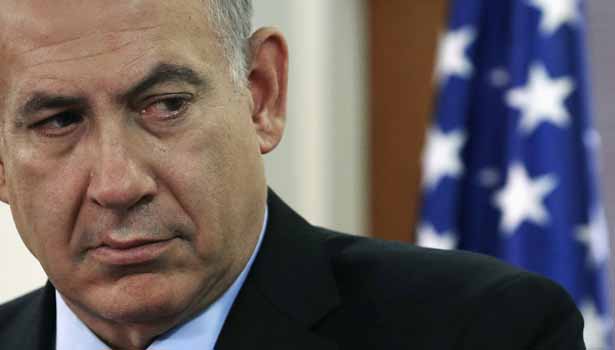In anticipation of President Hasan Rouhani’s diplomatic debut before the 193-member U.N. General Assembly, Iran’s American-educated foreign minister, Javad Zarif, has been working the U.N. corridors, telling anyone who will listen that Iran has changed its stripes and that its nuclear ambitions do not extend beyond its desire to generate more electricity.
“I have been a multilateralist all my life; Iran wants to engage with the world,” Zarif told a gathering of more than 100 diplomats at a private luncheon at the U.N. delegates’ dining room, according to a diplomat who was in the room. A former Iranian envoy to the United Nations, Zarif insisted that Iran is ready to deal: “We will move ahead and resolve the [nuclear] problem, not just for the sake of negotiation, not just for the sake of talking.”
The Iranian charm offensive contrasted starkly with Iran’s previous appearances at the United Nations. Mahmoud Ahmadinejad, Iran’s former president, took a certain pleasure in pushing Washington’s buttons, lambasting Israel and raising doubts about the veracity of American claims that al Qaeda carried out the 9/11 attacks. The change of tone from the Ahmadinejad era appears to be having an effect. “The diplomatic initiative of Iran has certainly had an impact,” said Christian Wenaweser, Liechtenstein’s U.N. ambassador. “People are keen to see diplomatic solutions and therefore [are] open to listening.”
The White House is clearly enticed by the Iranian overtures. The Iranian diplomat has been invited to participate in a meeting of big-power ministers, including U.S. Secretary of State John Kerry, on Iran’s nuclear program. “We welcome Iran engaging seriously,” said Ben Rhodes, a top national security advisor to U.S. President Barack Obama, who added that the White House wouldn’t rule out the possibility of a meeting between the two leaders. “As you heard us say repeatedly, we are open to engagement with the Iranian government at a variety of levels provided that they will follow through on their commitments to address the international community’s concerns over their nuclear program,” he said.
European Union high representative Catherine Ashton, who is chairing the meeting on Iran’s nuclear program and who had her first face-to-face meeting with Zarif on Monday, told reporters at U.N. headquarters that the Iranian diplomat would have a “short discussion” with his big-power counterparts later this week. “This is the first meeting in order to establish how we would work together,” she said. “We had a good and constructive discussion.” Ashton and her team will conduct more detailed discussions with Zarif and his advisors in Geneva next month.
Ashton said that her discussion with Zarif focused primarily on Iran’s plan to resume talks on its nuclear program. She said they did not discuss any steps Iran is willing to take to assure the outside world that it is not pursuing a nuclear weapon. “We didn’t talk about the details of what we should do. The purpose of this meeting was to establish how we would go forward,” she said. “In terms of whether we are on the verge of a breakthrough, I would put it like this: I was struck by the energy and the determination that the foreign minister demonstrated to me.”
But not everyone was swayed by the Iranian diplomatic gambit. Gary Samore, an expert on nuclear weapons proliferation at Harvard University’s Belfer Center for Science and International Affairs, said that while he supports U.S. diplomatic engagement with Iran, he warns that people shouldn’t get their hopes up too high. “Nobody is fooled by the charm offense; everybody understands the supreme leader is seeking nuclear weapons,” he said. “No matter how many times Rouhani smiles doesn’t change the basic objective of the program.”
Samore said that Iran has been forced into reopening nuclear negotiations in a bid to seek relief from crippling U.S., European, and U.N. sanctions. But he is skeptical that Iran will be prepared to pay the price to secure serious relief from sanctions. “The price tag is going to be very steep; they will need to accept physical limits on their enrichment capacity and stockpiling,” he said. “I haven’t seen any indication that they are willing to sacrifice that part of the program, which has taken 10 years to build up.”
The Iranian nuclear issue has gone through a series of wild ups and downs since 2002, when satellite pictures captured two clandestine nuclear sites in Arak and Natanz, raising suspicions that Iran was pursuing a secret nuclear weapons program. In 2005, after the election of Ahmadinejad, Iran launched a large-scale uranium-enrichment program.
The Iranian government has denied it is pursuing nuclear weapons, saying that it needs to enrich uranium to expand the country’s energy producing capacity. Successive efforts to strike a bargain that would place Iran’s nuclear program under greater scrutiny in exchange for an easing of international sanctions and supplying Tehran with trade and energy concessions have foundered.
Still, the prospect of a thaw in relations between the United States and Iran prompted calls from key Democratic and Republican leaders to maintain economic sanctions on Iran until it proves it is prepared to take verifiable steps to ensure the world that it is not pursing nuclear weapons.
“We respectfully urge that any diplomatic outreach to Iran re-emphasizes that the United States will not allow Iran to acquire a nuclear weapons capability and that any relief from crippling economic sanctions on Iran will only be provided if Iran takes meaningful and verifiable actions to halt its nuclear activities,” Sen. Charles Schumer (D-N.Y.) and Sen. John McCain (R-Ariz.) wrote in a letter to Obama.
Sen. Robert Menendez (D-N.J.) and Sen. Lindsey Graham (R-S.C.) warned that Iran has previously used “negotiations as a subterfuge for progress on its clandestine nuclear program”
“Iran is not a friend whose word can be taken as a promise,” they wrote. “The test of Iranian seriousness must be verifiable action by Iran to terminate its nuclear weapons program.”







